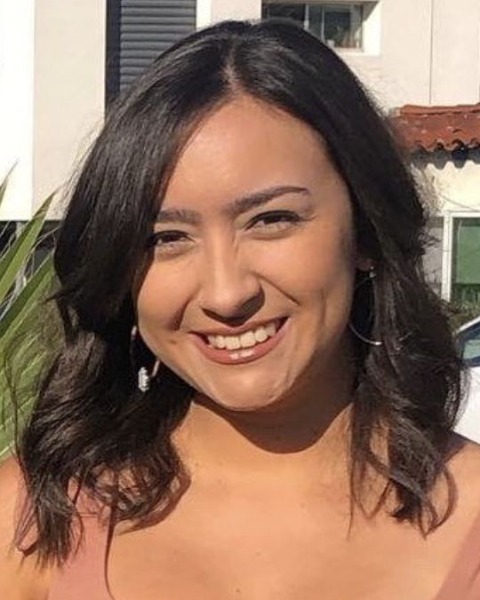Autism Spectrum and Developmental Disorders
Symposium 115 - Centering Community Collaborators as Local Experts in Training Efforts to Improve Behavioral Health Services for Autistic Youth
Level of Familiarity: Moderate
Recommended Readings: Wood, J. J., McLeod, B. D., Klebanoff, S., & Brookman-Frazee, L. (2015). Toward the implementation of evidence-based interventions for youth with autism spectrum disorders in schools and community agencies. Behavior therapy, 46(1), 83-95., Lyon, A. R., Munson, S. A., Renn, B. N., Atkins, D. C., Pullmann, M. D., Friedman, E., & Areán, P. A. (2019). Use of Human-Centered Design to Improve Implementation of Evidence-Based Psychotherapies in Low-Resource Communities: Protocol for Studies Applying a Framework to Assess Usability . JMIR research protocols, 8(10), e14990.,
-
DS
Diondra Straiton, M.A. (she/her/hers)
Michigan State University
Philadelphia, Pennsylvania, United States -
DM
David Mandell, Other (he/him/his)
Professor and Director
Perelman School of Medicine at the University of Pennsylvania
Philadelphia, Pennsylvania, United States -
DS
Diondra Straiton, M.A. (she/her/hers)
Michigan State University
Philadelphia, Pennsylvania, United States -
MP
Melanie Pellecchia, Ph.D.
University of Pennsylvania School of Medicine
Philadelphia, Pennsylvania, United States -
JL
Jill Locke, Ph.D. (she/her/hers)
Associate Professor
University of Washington School of Medicine
Seattle, Washington, United States -

Kassandra Martinez, M.S. (she/her/hers)
SDSU/UCSD Joint Doctoral Program in Clinical Psychology
San Diego, California, United States
Chair(s)
Discussant(s)
Presenter(s)
Community-based autism services are largely inconsistent with the evidence base. This has led to many efforts to improve the use of evidence-based practices for autism using tools from the field of implementation science. As part of this process, researchers have begun focusing on the role of community partnerships in intervention selection and adaptation to increase the fit of the intervention with the setting, population of interest, and the practitioners delivering it. While these community-partnered efforts have improved the fit of interventions, fewer efforts have leveraged community partnerships to optimize training and related supports for practitioners implementing these interventions at fidelity. This is of great concern, because most training efforts do not result in sustained clinician behavior change. In this symposium, we present examples of applying community partnership and engagement methods to the development and optimization of training, quality improvement, and related supports, building on methods designed for intervention selection and adaptation. We present results from projects that applied community-partnered research methods to training efforts focused on increasing and sustaining the use of evidence-based practices for autistic youth served in community settings. The symposium includes examples across 4 different publicly funded service systems in the United States, including Part C early intervention systems, community mental health systems, and public school systems. We highlight the perspectives of community partners as local experts who have invaluable knowledge about effectively reducing the research-to-practice gap in autism services.
Learning Objectives:
- Describe two implementation strategies pertaining to improving community-based autism services in under-resourced settings
- Identify three adaptations to implementation strategies recommended by community partners working in under-resourced mental health settings
- Explain how community-partnered research methods (e.g., co-creation of research, qualitative methods) can be used to optimize training models
- Explain how implementation science methods (e.g., user-centered design) can be used to optimize clinician training models
- Identify key determinants that affect autism service provision in under-resourced settings
Presentations:
-
8:30 AM - 10:00 AM EST(SYM 115) Recommendations from Clinicians and Agency Leaders to Optimize Consultation for a Parent Coaching Intervention for Autistic Children Served in the Medicaid System
Speaker: Diondra Straiton, M.A. (she/her/hers) – Michigan State University
Co-author: Jessie Greatorex, B.A. – Michigan State University
Co-author: Brooke Ingersoll, Ph.D., BCBA-D – Michigan State University
-
8:30 AM - 10:00 AM EST(SYM 115) Leveraging Community Partnerships to Develop Implementation Strategies to Support the Use of Caregiver Coaching for Autism
Speaker: Melanie Pellecchia, Ph.D. – University of Pennsylvania School of Medicine
Co-author: Rinad Beidas, Ph.D. (she/her/hers) – Northwestern University Feinberg School of Medicine
Co-author: David S. Mandell, Other (he/him/his) – Perelman School of Medicine at the University of Pennsylvania
Co-author: Liza Tomczuk, MPH – Drexel University
Co-author: Aubyn Stahmer, Ph.D. (she/her/hers) – University of California, Davis
-
8:30 AM - 10:00 AM EST(SYM 115) Iterative Redesign of an Implementation Strategy to Support a Behavioral Skills Evidence-based Intervention in Public Schools
Speaker: Jill Locke, Ph.D. (she/her/hers) – University of Washington School of Medicine
Co-author: Daina Tagavi, Ph.D. (she/her/hers) – University of Washington
Co-author: Ryan Allred, BA (he/him/his) – University of Washington
Co-author: Karen Bearss, Ph.D. (she/her/hers) – Seattle Children's Autism Center, University of Washington
-
8:30 AM - 10:00 AM EST(SYM 115) Community Implementation of an Evidence-based Autism Intervention: Associations Between Therapist Engagement Strategy Use and Parent Participatory Engagement
Speaker: Kassandra Martinez, M.S. (she/her/hers) – SDSU/UCSD Joint Doctoral Program in Clinical Psychology
Co-author: Colby Chlebowski, Ph.D. (she/her/hers) – San Diego State University
Co-author: Barbara Caplan, Ph.D. – California State University Long Beach
Co-author: Lauren Brookman-Frazee, Ph.D. – University of California, San Diego

.png)
